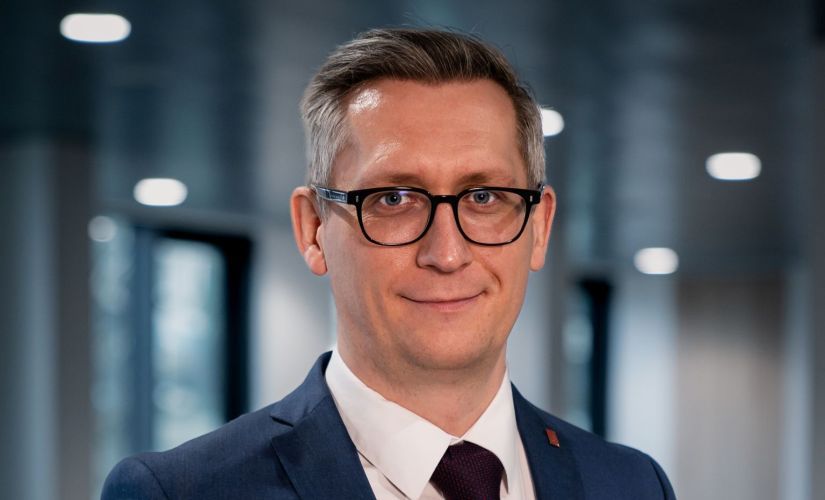The year began with excellent news for our university. How do you assess the results of the evaluation of scientific disciplines?
It is a huge success. Three disciplines received the highest category A+, six received a very good A, and three received a good B+. This keeps the university in contention for the top ten research universities. At the same time, this shows our enormous potential. At this point, I would like to express my sincere thanks to everyone whose work has contributed to this assessment. An intensive period of preparation for the evaluation process is behind us. Both academics and administrative staff put in a lot of effort, working together brilliantly. The coordination of activities in criterion 3, which is new for us and describes the impact of research results on the socio-economic environment, was particularly effective. We also performed well in the other two categories.
Criterion 3 mentioned above includes the popularisation of science. What are the planned activities in this area?
Ahead of us is the Research Week, which will take place in March. Its aim is to integrate the scientific community of our university. We want to promote science and show the various paths of scientific career development and the challenges involved. We have a lot to boast about and it will be an excellent opportunity to present the achievements and activities of our scientists, winners of prestigious European, national and university programmes including the LIDER E2TOP and FU2N programmes, as well as the activities of student research groups. We will showcase the possibilities of scientific work at TUL and the potential of our research infrastructure. In this way, we want to induce and promote interdisciplinary research and projects.
I invariably encourage you to follow Lodz University of Technology's popular science series, blog and social media accounts - also on TikTok, where we keep you up to date with the latest developments in our academic community. There really is a lot going on.
Lodz University of Technology is among the top 20 universities ranked in the IDUB programme. What are your plans to become a research university?
Our goal remains the same - we have ambitions to join the top ten. We continue to support the scientific excellence and publication and project activity of the staff of TUL. This is one of the reasons why we join international consortia such as the European Institute of Innovation and Technology (EIT) or the European Consortium of Innovative Universities (ECIU).
At the moment, TUL is implementing as many as 10 projects in the prestigious Horizon Europe programme. What support does the university offer in the project application process?
We are trying to streamline the process, so we have created the Project Management Module (MZP). This is an administrative tool to support researchers, and this translates into the number of projects. In addition, we have introduced a salary supplement for those involved in projects. Regarding our success in Horizon, I would like to emphasise our significant role as coordinator of several projects. We no longer only participate in strategic activities, but also coordinate them. We are being noticed internationally. In support of our staff's grant-acquisition activities, we have launched a system of subsidised travel to meetings where consortia are formed to later apply for grants. Their aim is to expand the network of partners, which is particularly important for young researchers. In addition, we have introduced a salary supplement for those involved in project implementation. We are also trying to improve the process of collecting data on the projects implemented at the university, which is why we have created the MZP. It allows us to respond more efficiently to the project needs of the ECIU or EIT networks by matching the scientific profile of our researchers with the needs of our partners.
On the occasion of the celebration of science, it is worth referring to basic and applied research.
Basic research is crucial to the development of society and the development of science can lead to solutions to the fundamental problems of society. Without basic research, there will be no technological progress. The knowledge of a particular phenomenon must always precede its application. Sometimes when making , we are not able to predict what application it will have. We may not be aware of its full application potential and exploit it. It is only with time that this discovery turns out to solve a key technological problem, leading to implementation. I have great respect for basic research and am aware that everything takes time.
What opportunities and threats do you see for science at the moment?
I have high hopes for the area of artificial intelligence. It carries enormous potential that can be used in many different areas of science. I think AI will not replace the scientist, but it will provide opportunities and research tools that are put to good use .
The threat, on the other hand, is the huge number of publications that we are unable to verify for reliability. Such papers undermine the credibility of science and make it increasingly difficult, not only for scientists, but also for the public funding our research, to find their way through the maze of information.
Interviewed by Agnieszka Garcarek-Sikorska

